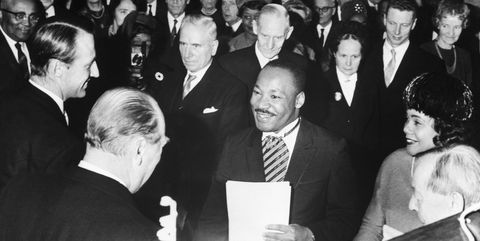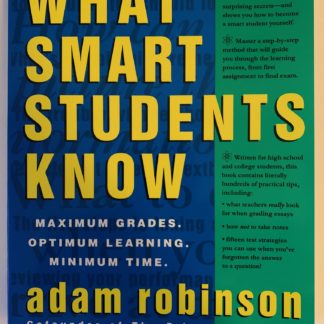Missing from the MLK quotes that ricocheted across the internet on 18th of this month….
…was the shifting context in which Dr. King uttered them. The Deep South back then thought him “uppity” and “militant” because of his eloquent insistence for equal justice. He stood up to their constant saber rattling, gainsaying, and eventual fire-bombing with a piercing intellect. Grudgingly, the South along with the rest of America eventually accepted that his thoughts on race and class should be heard. But once he tied Vietnam to his principled stance on non-violence and the status of Blacks in America, again, pundits promptly pounced.

“Aren’t you afraid you’ll alienate white moderates?” “Aren’t you afraid you’ll lose President Johnson as an ally?” they asked. While some within the civil rights movement may have been asking tactical questions, others were not. They were asking who gave him permission to opine on matters other than civil rights.
When the larger narrative of Dr. King’s life is covered, the chapter of his Vietnam opposition and estrangement from President Lyndon Johnson is remembered. However the basis of his opposition to Vietnam is rarely discussed. Among the reasons he laid out was the impact the cost of the war had on the prior federal investment in alleviating poverty, and the symbolic dissonance of the service provided by Black troops. In a speech he delivered on April 4th, 1967 he said,
“Perhaps the more tragic recognition of reality took place when it became clear to me that the war was doing far more than devastating the hopes of the poor at home. It was sending their sons and their brothers and their husbands to fight and to die in extraordinarily high proportions relative to the rest of the population. We were taking the Black young men who had been crippled by our society and sending them eight thousand miles away to guarantee liberties in Southeast Asia which they had not found in southwest Georgia and East Harlem. So we have been repeatedly faced with the cruel irony of watching Negro and white boys die together for a nation that has been unable to seat them together in the same schools.”
With this portion of his speech he explores the connections and conflict between domestic and foreign policy. Then he probes even deeper. He goes on to say this about the Vietnamese people we were supposedly helping to resist communist rule,
“They must see Americans as strange liberators. The Vietnamese people proclaimed their own independence in 1945 after a combined French and Japanese occupation…[and] even though they quoted the American Declaration of Independence in their own document of freedom, we refused to recognize them. Instead, we decided to support France in its reconquest of her former colony.”
From here Dr. King goes into great detail to describe the recent history of the Vietnamese working class and how their petitions for land reform were frustrated by the dominant class. He had done his homework and was well prepared to offer his perspectives on foreign policy. He masterfully weaved together threads of how the US treated the poor here at home and abroad. Yet critics had painted a bright line of separation between what they were willing and unwilling to hear him discuss.
In today’s world, we have seen those same limitations manifest as an intellectual segregation in explicit and subtle ways. Black athletes have been told to “shut up and perform”, after speaking to social justice issues. More subtle forms of segregation manifest in the public square based on who is asked the major questions of the day. How many Black or Hispanic economists have been asked about what’s needed for economic recovery? How many Black or Hispanic foreign service experts have been asked about countries other than those on the African or South American continent? To what extent is our nation depriving itself of perspectives that could round out our national debates?
Another substantial manifestation has been identified by Dr. Claude Steele as a phenomenon he calls “stereotype threat”. The “threat” is the influence of stereotypes on educational outcomes . In his book, “Whistling Vivaldi” he discusses the phenomenon in more detail. The book describes experiments he conducted where he discovered three dimensions of the threat:
1) that “contingencies tied to our social identities…shape our lives from the way we perform to the careers and friends we choose”;
2) that “identity threats” influence “racial, social class, and gender achievement gaps” and;
3) that threats “impair a broad range of human functioning.”
These now famous experiments used the art of suggestion with student subjects just prior to taking aptitude tests. By suggesting that “people like them”, where “them” could mean one’s ethnic group, social class, or gender, tended to do well or poorly on such tests, he found that their performance would rise or fall based on those supplied expectations. However, what he explains further is that it is more than just the utterance of an individual that carries the momentum of impact, but that the utterance or the ethos of the learning environment parlays the power of prevailing stereotypes in society.
The book is full of important stories that capture the many ways that stereotype threats are triggered and the impacts they have on student cognition and physical health. To conclude, he offers these suggestions:
- Offer a “narrative intervention”: Build a narrative that places a target group of students at the center. Have that narrative acknowledge the kinds of challenges that they may face because of the implicit threats, but speak to the kinds of interventions that could help “students like them”. The use of the conditional tense here is important so as to not give undue momentum to the implied stereotype.
-
Include targeted students within a narrative that speaks to the “expandability of human intelligence”, which is to suggest that regardless of the academic state they are in now, that they can significantly improve.
- Have students write down their most important values in a school context at the beginning of a semester, then have them write a paragraph describing why those values are important and then finally save what they wrote in an envelope. This exercise of self-affirmation gave students a way to build a more broader and positive narrative that will overcome early difficulties in class. Also, by starting a semester with positive affirmation, they are less likely to tumble into a downward spiral of self-doubt when the encounter trouble early.
Dr. King’s contemporaries attempted to apply a type of stereotype threat by questioning his competence in matters other than civil rights. However he used the narrative of his own life to transcend intellectual segregation and recognize how his values tied together domestic and foreign policy. From Dr. King, to Dr. Steele, to you is passed a baton to help our children write their narratives. Many are struggling with learning online, but perhaps our imagination is still fertile enough to acknowledge these stumbling blocks while yet helping them declare the kinds of values and strategies needed to overcome them. The world awaits the many ways they will apply their intellect to the issues we still need to solve.

